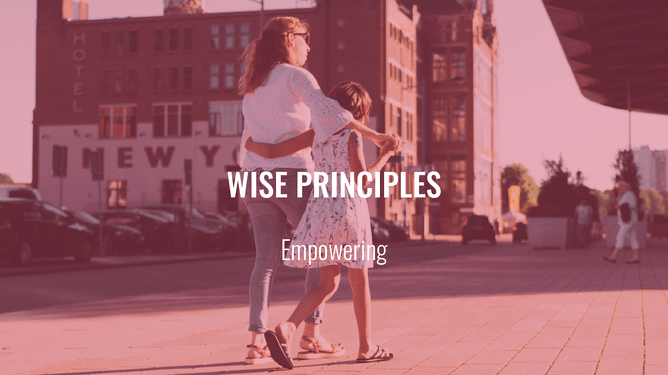The Alongsider movement seeks to create relationships where vulnerable children become young brothers and sisters who learn to stand on their own, and where many of them will eventually be Alongsiders to other children. Most Alongsiders have grown up and feel inferior to themselves. Then they become big brothers and big sisters, servant leaders, disciple makers, and problem solvers in their own churches and communities.
I (Craig) am visiting a little boy who lives with his family in a hut. The Alongsider tells me that the boy is sick. The family wants me, the foreigner, to pray for him. I realise that if I pray for the little boy, the next time they need prayer, they will look for a foreigner, an outsider, to come and pray. So I suggest that the Alongsider, who is their neighbour, pray for the boy instead. I know that by giving him strength the next time the family needs prayer, they will go directly to him. By giving him the opportunity to lead and serve his neighbours, he becomes part of the solution.'
Empowerment is not about reaching down and lifting people up. This may be necessary in a crisis, such as after an earthquake, when people literally need to be pulled out of holes, but this is generally a top-down perspective and the helpers are seen as heroes. People and communities gain power when they discover their own strengths and abilities and use them to help themselves and each other. The story above illustrates how empowerment can depend on the willingness of those who appear strong to recognise and affirm the strengths and gifts of others.
Seven years ago, nineteen-year-old Sothana (Cambodia) wanted to become a Alongsider. When he looked around his village, he saw twelve-year-old Ni, who belonged to one of the poorest families. Ni had dropped out of school and his future looked bleak, so Sothana chose him. A year later, Ni's father, a chronic alcoholic, most likely died by slowly poisoning himself by drinking cheap, locally made rice wine laced with methanol. But "He was a good father," Sothana said, and Ni felt loved by him.
Ni's father had been the main provider of the family, so it fell on Ni to take his place. For three years, Ni hired himself out to work for local farmers, taking any job he could get. Without any specialised skills or family land, his options were limited. Even if an organisation covered the training costs so Ni could learn a trade, he would still have to consider how his family would survive the training period without his small income. But encouraged by Sothana, Ni went back to school in his spare time and reached the ninth grade.
Through all the sadness and challenges, Ni said that having a Alongsider and being welcomed by the local church made a difference. Once, when the roof of Ni's house collapsed during a heavy rain, the church members helped to fix it. Before, I did not spend time with others,' he said, 'because I felt in my heart that I was poor. I was afraid and lonely. Today, Ni is connected to a community that includes the Alongsiders, their siblings and other church members.
At 16, Ni considered becoming an Alongsider, but worried that others would look down on him because he was poor and uneducated. Yet he has learned to survive, to support his family, and has even survived in school despite severe challenges. He also has a relationship with Jesus and a community of friends. In many ways, he is an ideal mentor for a vulnerable child growing up in similar circumstances, but his empowerment will only be complete when he recognises and affirms his own strengths and gifts. Fortunately, his Alongsider and church community will continue to encourage him.'
Principles in relational movements
When Jesus proclaimed 'the Kingdom of God', he invited his followers to a new way of relating to God and each other and called them to 'repent', which means to change our way of thinking. But changing our way of thinking is difficult and sometimes confusing, and instead of giving us clear instructions, Jesus taught and lived in parables and paradoxes. When he spoke directly, he gave system-breaking commands, such as 'love your enemies' and 'turn the other cheek'. Yet he demonstrated the Kingdom by eating with sinners and tax collectors. As people tried to make their way through the 'human mess', he noticed the marginalised on the edges: a blind man calling out to him, a chronically bleeding woman secretly touching him, and children being pushed away. He stopped and 'wasted time' with them, attending to their physical, spiritual and social needs. When his followers were most excited and impressed, ready to lift him up and crown him, he climbed into a boat and left. Later he told his disciples to become servants instead of trying to be the greatest, and he washed their feet. All this time, people missed the fact that people and relationships were more important to Jesus than doing what people wanted or expected. He saw a kingdom coming that would change everything, and he thought in new ways that defied simple answers and clarity.
The WISE principles do not live up to popular expectations, nor do they offer simple answers or clarity. They are not formulas for leading successful movements and they will not make decision making easy or straightforward. But we think they are wise because they reflect the wisdom we see in the relational way Jesus interacted with people. These principles guide leaders and organisers of Alongsider movements toward decisions and actions that serve and honour people and relationships in Christ rather than harm or diminish them.
(Used with permission from: 'The Alongsiders Story - equipping one generation to reach the next' by Craig Greenfield and Andy Gray)

